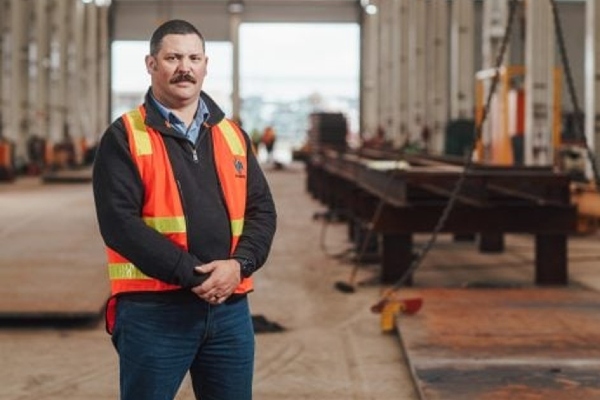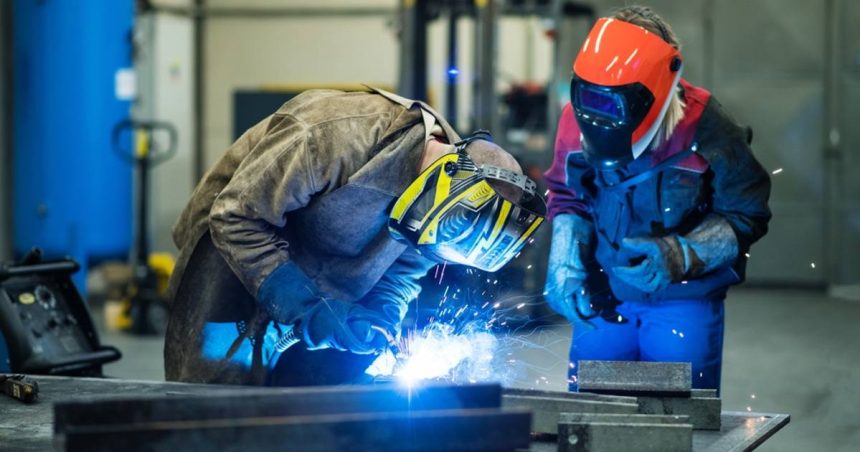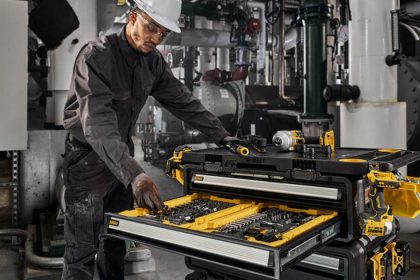As the industry celebrates its 14th annual National Skills Week, we’re taking a look at how vocational training is shaping the lives of Aussies living off the beaten path.
After 18 years working in the engineering and fabrication industry, Tasmanian boiler maker and welder Bradly Maynard says he owes his entire life to the vocational training that got him behind the tools.
Coming from the small town of Launceston with a minuscule population of 77,363, he says it was slim pickings when it came time to choose a career that felt right for him.

Thankfully, Martin was guided toward a few VET courses that would hand him the skills he needed to build a successful career in the trades.
“VET has shaped my life from when I first completed my apprenticeship as a boilermaker and welder, to where I am today as a Safety Manager looking after almost 300 employees,” he said.
Fast forward almost two decades after his apprenticeship began, and Bradley has not only built a long and successful career but also holds a Cert IV qualification in four different areas and claimed the title of Aboriginal-Torres Strait Islander Student of the Year at last year’s Tasmanian Training Awards.
And Maynard said his time in the VET system isn’t stopping there as he finishes his Diploma in Work Health and Safety and makes plans to move on to a Diploma in Construction Management.
“I’m constantly striving to improve my knowledge by studying, I’m passionate about training and have been assisting others on finding their pathways through the VET sector,” he added.
Workers are looking to learn outside of cities
But Bradley’s story is just one of the hundreds of thousands of Aussie workers finding success in remote areas of the country thanks to the VET system.
According to the Regional Australia Institute, more Aussie workers are looking to leave the big smoke in search of a career out amongst the gum trees. Online job advertisements have peaked outside of city limits, hovering just under 100,000 in places like far north Queensland and rural Victoria.
However, while demand remains highest for essential community workers like GPs, nurses, educators and aged care workers, the ongoing housing crisis and tradie shortages have quietly made a career on the tool one of the most profitable – if you can handle the hard yards.
National Skills Week Chair Brian Wexham said that the “significant” opportunities VET offers in remote and regional areas of the country are laying the groundwork for any number of “life changing” career advancements.
“National Skills Week is about putting a spotlight on opportunities, recognising those already succeeding and providing a template for success for those embarking on new careers,” he said.
It seems like students like South Australian School-based Apprentice of the Year finalist Sophie Orrock would agree as she gears up to tackle life on the tools as an auto electrician in Bordertown.

Working as one of only five auto electricians in the area during her last school year, Sophie says that the opportunity to “study at school, make a bit of money on the side and try fields without having to commit to the job” seemed like a no-brainer.
“VET opened my eyes to a broader field for job opportunities without having to go to university”, she says.
Learning for every type of Aussie
With a world of opportunity opening up the trades in the coming years, TAFE NSW Managing Director Stephen Brady encouraged Aussies from all walks of life to give vocational training a red hot go.
“Vocational education is for every Australian, whether they’re beginning their career, taking it to the next level, or changing careers,” he said.
“Learners in regional, remote, and urban areas – across all levels of schooling and job experience – benefit greatly from the many education, training, and industry connection opportunities offered by registered training providers like TAFE NSW.
As VET institutions adopt more flexible course delivery initiatives like online classes, block releases and even virtual reality training, Brady said that high-quality training was right at workers’ fingertips “anytime, anywhere”.
“Vocational education really does pave the way to success for our regional communities, industries, and the economy,” he added.
“We can be a career game changer for everyone from secondary school students learning a trade though to learners completing a bachelor’s degree and business owners needing to upskill for industry currency.”







